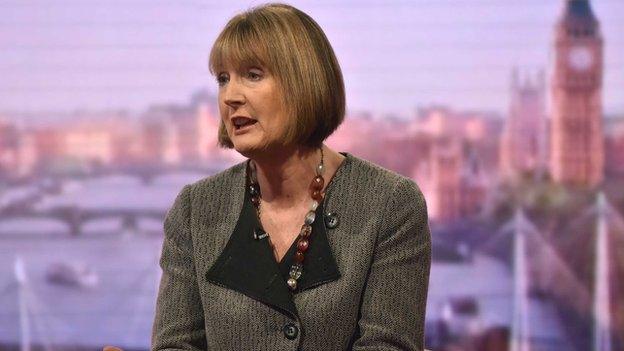Labour's Andy Burnham pledges to scrap tuition fees
- Published
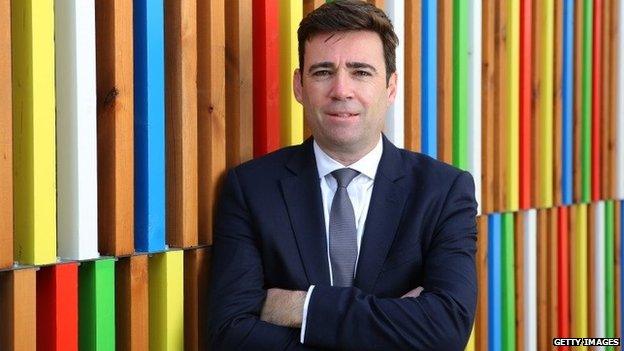
Andy Burnham is pledging to replace tuition fees with a "graduate tax" if he becomes Labour leader.
He said the move would "lift the millstone of debt" from students.
Of the other contenders, Yvette Cooper also backs a graduate tax, Jeremy Corbyn wants to bring back maintenance grants and Liz Kendall would focus on early years education.
Mr Burnham also insisted his plan to "renationalise" the railways line-by-line could "finance itself".
Speaking on BBC Radio 4's Today programme the shadow health secretary said money generated would "go back into supporting the railway system".
Under his plans, private companies could still bid to run franchises as they expire, but public bids would be encouraged and the branding of trains, as well as tickets and prices, would be controlled by a new National Rail organisation.
The pledges on rail and tuition fees feature in Mr Burnham's new manifesto, external, which also includes:
Freeing councils to build new homes and introducing regulation of the private rented sector
Abolishing the youth rate National Minimum Wage, establishing a true living wage for all ages, banning forced zero-hours contracts and unpaid internships
Good care throughout people's lifetimes, through a National Health and Care Service, bringing social care into the NHS and meaning no-one is forced to sell their home to afford care.
In its manifesto for the 2015 general election, Labour said it would cut tuition fees in England from £9,000 to £6,000 per year from autumn 2016.
It said the move would be paid for by reducing tax relief on pensions for those earning over £150,000.
Mr Burnham's team say the graduate tax will be considered in detail by a new Beveridge-style commission, which would look at who should cover the shortfall of the money needed by universities in the short-term.

Labour leadership contest
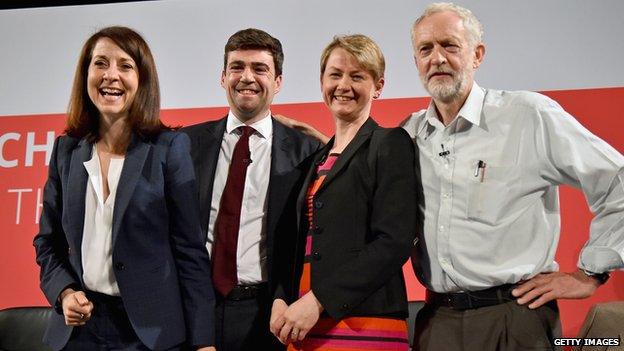
Liz Kendall has been urged to back Andy Burnham or Yvette Cooper to defeat Jeremy Corbyn
Who are the candidates? Andy Burnham, Yvette Cooper, Jeremy Corbyn, Liz Kendall
Dates: Ballot papers will be sent out on 14 August; voting can take place by post or online. They must be returned by 10 September. The result is on 12 September
Who can vote? All party members, registered supporters and affiliated supporters - including those joining via a union
What is the voting system? The Alternative Vote system is being used so voters are asked to rank candidates in order of preference
How does it work? If no candidate gets 50% of all votes cast, the candidate in fourth place is eliminated. Their second preference votes are then redistributed among the remaining three. If there is still no winner, the third place candidate is eliminated with their second preferences (or third in the case of votes transferred from the fourth place candidates) redistributed. It is then a head-to-head between the last two candidates

Mr Burnham was also asked about the success of left-wing candidate Mr Corbyn's campaign, after the Islington North MP was nominated by more constituency Labour parties than any other.
"Jeremy has lifted the debate, and I think that's a good thing," he said.
The Leigh MP, who has previously floated the idea of a new tax to pay for the rising cost of social care, also said his promises would involve "difficult spending choices".
- Published12 September 2015
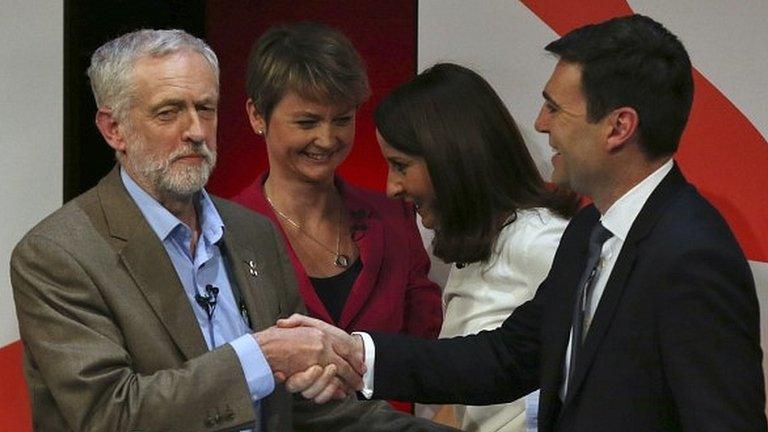
- Published4 August 2015
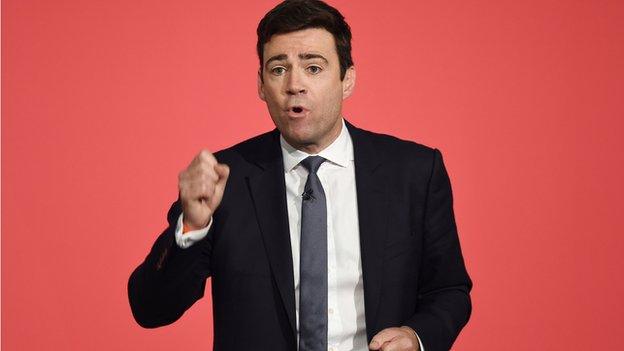
- Published5 August 2015
